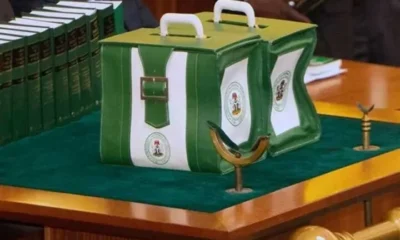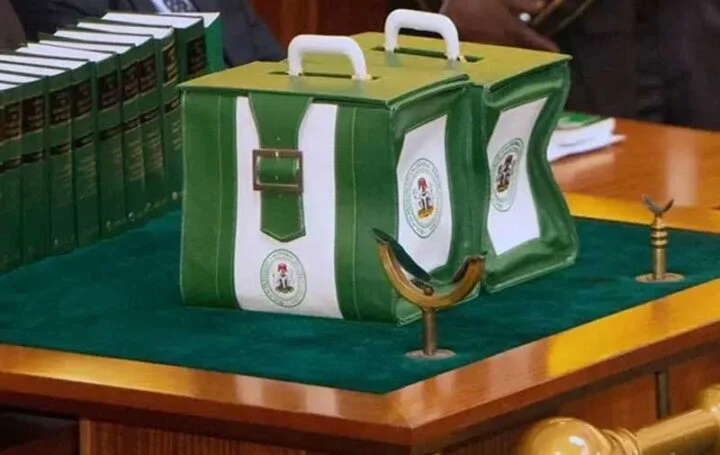Every day is for the Teachers! The moment we start giving preferences to the profession and the people as the most important members of our society, the moment there will be the emergence of true instructors and educators who are ready to instill the requisite knowledge for nation building.
Alas! The society is in quagmire and stagnated in this part of the world. Over the years, least attention has been given to the whole of the educational sector- the citadel of learning. The Citadel that houses the army of teachers. Today, can it be said to be a great citadel of learning? Can it be said to be a fortified environment that promotes excellence in academics through sound teaching and learning that influences people becoming better and ideal citizens who are able to shape a better society to live in, by knowing and respecting rights, laws, and regulations?
Alas! This must be one of the reasons our nations have been locked to dangerous and usually complex situation which is difficult to exit. We have been embroiled in inextricable complexities amongst civilians during the electioneering processes that come with its reverberating effects in democracy with support of the Judiciary.
This is informed by the monumental corruptions and the lack of interest in the sector caused by bad government policies and lack of political will amongst the ‘elites’ to enforce or implement laws. Hence, the Nigerian educational system is bedeviled with myriad of glitches that has led to near-comatose of the sector in recent years.
The system is faced with problems such as lack of adequate funding, negligence of teachers’ welfare, poor governance, corruption, lack of Infrastructure, indiscipline, lack of teaching aids and outdated curriculum. Though, the entire sector is wracked by endemic corruption, so much so that it has eaten deeply into the fabric of the entire system; the fundamentals must first be addressed.
Alas! The lacuna in the educational sector of our country that happens to be the rudiment impeding the sustainable development meant to intrinsically translate to the nation of ‘my dream’ and ‘your dream’ invariably stems from the Constitution of the Federal Republic of Nigeria, 1999 (5th Alteration) (No. 8) ACT, 2023. And it has gone largely unnoticed!
Meanwhile, the ACT created the National Policy on Education (NPE) 2004 and the compulsory, Free Universal Basic Education (UBE) ACT 2004. The NPE affirmed that education in Nigeria is an instrument ‘par excellence’ for effecting national development. Primarily, amongst its objectives, the NPE is focused on the need for functional education for the promotion of progressive united Nigeria, and to this end; school programmes need to be relevant, practical and comprehensive whilst interest and ability should determine the individual direction in education. This is expected for the country to spell out in clear and unequivocal terms the philosophy and objectives that underlie its investment in education (for the welfare of Teachers and Students). However, the Nigerian Constitution provides that it shall be the responsibility of the government to direct its policy towards ensuring that there are equal and adequate educational opportunities at all levels, it shall provide science and technology, it shall strive to eradicate illiteracy, and to this end, government shall, as and when practicable, provide free, compulsory and universal primary education; free secondary education; free university education; and free adult literacy programme.
Consequently, regardless of the prevalence of robust laws and legislative measures towards ensuring the right to education and its role to maintain a great citadel of learning that fosters the worth and development of the citizens for individual’s sake and for the general development of the society, education system in Nigeria is still a chimera.
One could have also believed that Nigeria as a member of the United Nations and a signatory to many international human rights instruments that provide for the right to education and made recommendation to promote teacher’s status in the interest of quality education would have addressed the enigma in the system.
In spite of the United Nations Educational, Scientific and Cultural Organisation (UNESCO) recommendation that developing countries should dedicate 15% to 20% of their annual budget to public education, less than 2% of Nigeria’s GDP only had been committed to education in more than 10 years. This shows that the national budget for education has remained abysmally poor over the period. This regardless of the fact that half of the money budgeted still ends up being stolen away by corrupt government officials, leaving the sector almost comatose.
UNESCO proclaimed 5 October to be World Teachers’ Day in 1994, celebrating the great step made for teachers on 5 October 1966.
Specifically, I must say that the recommendation has failed to promote teachers’ status in the interest of quality education.
The prevalent violations in the sector, however, revealed that making provision for quality education and welfare of teachers in Nigeria have become anathema amongst successive governments.
With the current health of the country’s citadel of learning, the citadel that houses the army of teachers for the desired nation of our dreams remains elusive, which does not call for celebration of any sort.
No doubt, the narratives of the dream of our nation can be upturn through improved educational system by funding the sector adequately, embracing technology, curriculum reform, putting safeguards in place to stem the tidal wave of massive corruption that has stymied the growth of the sector in recent years.
Most importantly, the legislators should go back to the drawing board to ensure that the Federal Republic of Nigeria’s Constitution wholly captures the welfare of our teachers as integral part of the education sector.
To get it right as a nation that values education, teachers’ sacrifices should be treated as blood is to life. I strongly agree with the Prime Minister of India, Narendra Modi who said, “Teaching is not a profession, but a way of life.”
So, how well this important ‘way of life’ is handled determines to the nations of our dreams. If this concept has been in practice over the years, it would have curbed the concerns of this years’ (2023) World Teachers’ Day celebrations, themed, “The Teachers We Need for the Education We Want: The Global Imperative to Reverse the Teacher Shortage.” Unfortunately, what value do we place on teachers in Nigeria?
Alas! Brain drain may hit the country’s educational sector soon, as exodus of teachers from our country looms.
The daily appreciation and celebration by individuals and governments will address the unprecedented teacher shortage and showcase practices to attract, retain, and motivate teachers and educators in Nigeria and other African countries. I am of the opinion, it is high time the yearly 5th October, Teacher’s Day celebration is scrapped.
Permit me to buttress my point further with an extract from an aspiring linguist, Julia S’s narrative, titled, “In Japan, there is no Teacher’s Day”.
“In Japan, a teacher is the most respected profession, the most respected person. Japanese entrepreneurs are delighted when teachers visit their stores; they consider it an honor.
During my time in Japan, I repeatedly saw how Japanese people deeply respect teachers. There are separate seats for them on the subway, dedicated stores, and teachers don’t wait in line for tickets on any form of transportation.
Why do Japanese teachers need a separate holiday when every day of their lives is like a celebration?”
I believe that every day is for the Teachers! Because Teachers across the world, work tirelessly daily, often without accolades.
Just like the Japanese cultural belief that provision of quality education has been hallmark of prosperous nation, in our little ways, everyone can help by celebrating the profession, by generating awareness about teacher issues, by ensuring that teacher’s respect and welfare is part of the natural order of things.
Indeed, teachers are the backbone of our democracy – fostering curiosity and creativity, building skillful individuals, and strengthening informed citizens in pursuit of the nation of our dreams.
Let’s take the opportunity each day to reverence the important roles teachers play in our lives because their determination and sincerity will shape the destiny of the nation as they are laying the foundation and the building blocks of the society.
Written by Blaise Udunze, a Media/Public Relations & Communications Professional, writes from Lagos
Email: Blaise.udunz
[email protected]
Tel: +2348037901057s

 BIG STORY2 days ago
BIG STORY2 days ago
 BIG STORY3 days ago
BIG STORY3 days ago
 BIG STORY4 days ago
BIG STORY4 days ago
 BIG STORY3 days ago
BIG STORY3 days ago
 BIG STORY2 days ago
BIG STORY2 days ago
 BIG STORY3 days ago
BIG STORY3 days ago
 BIG STORY1 day ago
BIG STORY1 day ago
 BIG STORY10 hours ago
BIG STORY10 hours ago






















